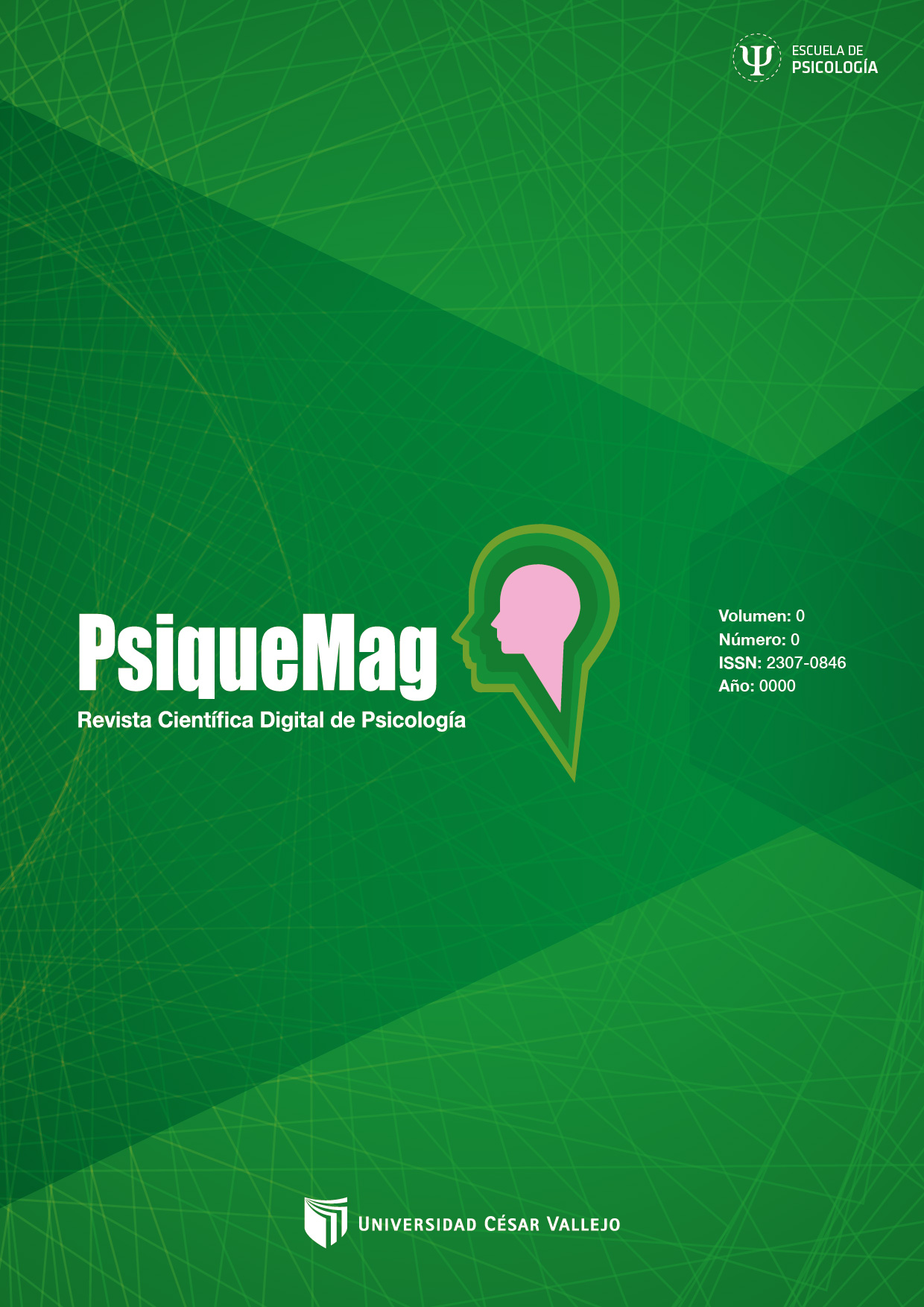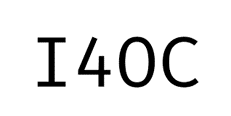Influence of attitudinal factors towards the COVID19 pandemic as a predictor of academic self-efficacy in psychology undergraduates
DOI:
https://doi.org/10.18050/psiquemag.v12i2.2512Keywords:
covid, actitudes, autoeficaciaAbstract
The objective of this research was to establish a relationship between attitudinal factors as predictors of academic self-efficacy in Psychology students at a private university in Lima. For this purpose, a sample of 187 students belonging to the first cycle of the School of Psychology was used. Under a non-experimental descriptive correlational design. Instruments such as the Questionnaire of Attitudes towards the Pandemic COVID19 and the Scale of Perceived Self-Efficacy specific to academic situations - EAPESA were used. As for the correlation, the value of the coefficient of determination (R-squared = 0.51) indicates that attitudinal factors influence academic self-efficacy by 5.1% in variation. And as for the linear regression, a prediction model of academic self-efficacy was established, taking into account the following data Y1= 18.427 + .97 (Attitudinal factors). Finally, it is concluded that attitudinal factors do not significantly predict academic self-efficacy.
Downloads
References
Ajzen, I. & Fishbein, M. (1980). Understanding attitudes and predicting social behavior. Prentice-Hall.
Alegre, A. (2014). Autoeficacia académica, autorregulación del aprendizaje y rendimiento académico en estudiantes universitarios iniciales. Propósitos y Representaciones, 2(1), 79-120. http://dx.doi.org/10.20511/pyr2014.v2n1.54
Alkot, M., Albouq, M., Shakuri, M. & Subahi, M. (2016). Knowledge, attitude, and practice toward MERS-CoV among primary health-care workers in Makkah Al-Mukarramah: an intervention study. Int J Med Sci Public Health, 5(5), 952-9. http://journalsarchive.com/FILES/IJMSPH/25.%20Knowledge,%20attitude,%20and%20practice.pdf
Allport, G. (1935). Attitudes, en Murchison. Handbook of social psychology. Clark University Press.
Aristovnik, A., Keržič, D., Ravšelj, D., Tomaževič, N. & Umek, L. (2020). Impacts of the COVID-19 Pandemic on life of higher education students: a global perspective. Sustainability, 12(20), 1-34. https://doi.org/10.3390/su12208438
Bandura, A. (1977). Self-efficacy: Toward a unifying theory of behavioral change. Psychological Review, 84(2), 191–215. https://doi.org/10.1037/0033-295X.84.2.191
Bandura, A. (1986). Autoeficacia del profesor universitario: eficacia percibida y práctica docente. Nacea
Bandura, A. (1987). Pensamiento y acción: fundamentos sociales. Martínez Roca.
Chang, M., Minggui, L. & Lai, W. (2020). Epidemiologic and Clinical Characteristics of Novel Coronavirus Infections Involving 13 Patients Outside Wuhan, China. JAMA, 323(11), 1092-1093. https://jamanetwork.com/journals/jama/fullarticle/2761043
Coque, S. y Ponce, D. (2019). Factores actitudinales y de formación que impactan en el desarrollo de proyectos software como modalidad de titulación. Revista Universidad y Sociedad, 11(4), 400-408. http://scielo.sld.cu/scielo.php?script=sci_arttext&pid=S2218-36202019000400400&lng=es&tlng=es.
Dagnino, J. (2014). Regresión lineal. Revista Chilena de Anestesia, 43(2), 143-149. https://revistachilenadeanestesia.cl/PII/revchilanestv43n02.14.pdf
Escalante, E., Repetto, A. y Mattinello, G. (2012). Exploración y análisis de la actitud hacia la estadística en alumnos de psicología. Liberabit, 18(1), 15-26. https://www.redalyc.org/pdf/686/68623931003.pdf
Fishbein, M., Salazar, J. & Rodríguez, P. (1988). Predicción del uso de cinturones de seguridad en estudiantes venezolanos: una aplicación de la teoría de la acción razonada en Latinoamérica. Revista de Psicología Social y Personalidad, 4(2), 19-41. https://www.researchgate.net/profile/Pedro-R-Rodriguez-Carrillo/publication/286192124_Predicting_Venezuelan_students%27_use_of_seat_belts_An_application_of_the_theory_of_reasoned_action_in_Latin_America/links/5c058c6492851c6ca1fc23bb/Predicting-Venezuelan-students-use-of-seat-belts-An-application-of-the-theory-of-reasoned-action-in-Latin-America.pdf
Fondo de las Naciones Unidas para la Infancia [UNICEF] (4 de octubre de 2021). Los efectos nocivos de la COVID-19 sobre la salud mental de los niños, niñas y jóvenes son solo la punta del iceberg. [Comunicado de prensa]. https://www.unicef.org/es/comunicados-prensa/efectos-nocivos-covid19-salud-mental-ninos-ninas-jovenes-punta-iceberg
Gaeta, M. Martínez, L., Iturbide, P. y Sanz, A. (2021a). Conductas de salud pública y salud mental ante el COVID-19 en población mexicana. Revista Iberoamericana de Psicología, 14(3), 1-12. https://reviberopsicologia.ibero.edu.co/article/view/2040
Gaeta, M., Gaeta, L. y Del Socorro, M. (2021b). Autoeficacia, estado emocional y autorregulación del aprendizaje en el estudiantado universitario durante la pandemia por COVID-19. Revista Actualidades Investigativas en Educación, 21(3), 1-24. https://www.redalyc.org/journal/447/44768298002/html/
Gaur, U., Azim, A., Sa, B., Sarkar, S., Williams, A. & Singh, K. (2020). Challenges and Opportunities of Preclinical Medical Education: COVID-19 Crisis and Beyond. SN Compr Clin Med, 2(11), 1992-1997. https://www.ncbi.nlm.nih.gov/pmc/articles/PMC7508422/
García-Fernández, J. M., Inglés, C. J., Torregrosa, M. S., Ruiz-Esteban, C., Díaz-Herrero, Á., Pérez-Fernández, E., & Martínez-Monteagudo, M. C. (2010). Propiedades psicométricas de la Escala de Autoeficacia Percibida Específica de Situaciones Académicas en una muestra de estudiantes españoles de Educación Secundaria Obligatoria. European Journal of Education and Psychology, 3(1), 61-73. https://www.redalyc.org/pdf/1293/129313736005.pdf
Gonzáles-Benito, A., López-Martín, E., Expósito-Casas, E. y Moreno-Gonzáles, E. (2021). Motivación académica y autoeficacia percibida y su relación con el rendimiento académico en los estudiantes universitarios de la enseñanza a distancia. Revista Electrónica de Investigación y Evaluación Educativa, 27 (2). https://doi.org/10.30827/relieve.v27i2.21909
Hernández-Sampieri, R. y Mendoza, C (2018). Metodología de la investigación. Las rutas cuantitativa, cualitativa y mixta. Editorial Mc Graw Hill Education.
Hisham, I., Townsend, G., Gillard, S., Debnath, B. & Sin, J. (2020). COVID-19: the perfect vector for a mental health epidemic. BJPsych Bull, 1, 1-7. https://www.ncbi.nlm.nih.gov/pmc/articles/PMC7308597/
Honicke, T. & Broadbent, J. (2016). The influence of academic self-efficacy on academic performance: a systematic review. Educational Research Review 17, 63-84. https://doi. org/10.1016/j.edurev.2015.11.002
Liang, Z., Ooi, SBS. & Wang, W. (2020). Las pandemias y su impacto en la formación médica: lecciones de Singapur. Academia Med, 21(4), 265-271. https://www.ncbi.nlm.nih.gov/pmc/articles/PMC7301086/
Meadows, M. (2017). Confianza: cómo superar tus creencias limitantes y alcanzar tus metas. Meadows Publishing.
Padua, J. & Ahman, I. (1979). Escalas para la medición de actitudes. Técnicas de investigación aplicadas a las ciencias sociales. FCE.
Puspitasari, I., Yusuf, L., Sinuraya, R., Abdulah, R. & Koyama, H. (2020). Knowledge, Attitude, and Practice During the COVID-19 Pandemic: A Review. Behavioral sciences, 12(7). https://www.ncbi.nlm.nih.gov/pmc/articles/PMC9312151/
Rodríguez, J., Ángeles, S., Wong, R. y Bravo, M. (30 de abril de 2021). Pandemia y su impacto psicológico en la población. Servicio de Neuropsicología del Instituto Nacional de Ciencias Neurológicas. https://www.incn.gob.pe/2021/04/30/pandemia-y-su-impacto-psicologico-en-la-poblacion/#:~:text=Estudios%20recientes%20confirman%20que%20el,la%20separaci%C3%B3n%20de%20la%20familia
Rotter, J. (1966). Generalized expectancies for internal versus external control of reinforcement. Psychological Monographs: General and Applied, 80(1), 1-28. https://doi.org/10.1037/h0092976
Shigemura, J., Morganstein, U., Kurosara, M. & Benedek, D. (2019). Public responses to the novel 2019 coronavirus (2019-nCoV) in Japan: Mental health consequences and target populations. Psychiatry and Clinical Neurosciences, 74(4), 281-282. https://onlinelibrary.wiley.com/doi/10.1111/pcn.12988
Staats, A. & Staats, C. (1958). Attitudes established by classical conditioning. The Journal of Abnormal and Social Psychology, 57(1), 37–40. https://doi.org/10.1037/h0042782
Talsma, K., Robertson, K., Thomas, C. & Norris, K. (2021). COVID-19 Beliefs, Self-efficacy and academic performance in first-year university students: cohort comparison and mediation analysis. Frontiers in Psychology, 12. https://doi.org/10.3389/fpsyg.2021.643408
Tinto, V. (1975). Dropout from Higher Education: A theoretical synthesis of recent research. Review of Educational Research, 45(1), 89-125. https://journals.sagepub.com/doi/10.3102/00346543045001089
Torda, A., Velan, G. y Perkovic, V. (2020). El impacto de la pandemia de Covid-19 en la educación médica. Med J Aust, 14(1). https://apuntesuniversitarios.upeu.edu.pe/index.php/revapuntes/article/view/1322
Vicuña-Peri, L. A., Saavedra-López, M. A., Calle-Ramirez, X. M., Hernández, R. M., & Mamani Benito, O. J. (2022). Diseño y validación del cuestionario de actitudes hacia la Covid-19 (CAPC-19). Boletín de malariología y salud ambiental, 62(6), 1298–1305. https://doi.org/10.52808/bmsa.7e6.626.023
Downloads
Published
How to Cite
Issue
Section
License
Copyright (c) 2023 Taniht Lisseth Cubas Romero

This work is licensed under a Creative Commons Attribution 4.0 International License.
You are free to:
- Share — copy and redistribute the material in any medium or format
- The licensor cannot revoke these freedoms as long as you follow the license terms.
Under the following terms:
-
Attribution — You must give appropriate credit, provide a link to the license, and indicate if changes were made. You may do so in any reasonable manner, but not in any way that suggests the licensor endorses you or your use.












